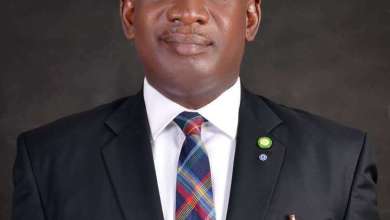CJN Vows Sanctions Against Judges Issuing Conflicting Court Orders

In response to a surge in conflicting court decisions, particularly highlighted by the Kano emirate crisis in May, Chief Justice of Nigeria (CJN) Olukayode Ariwoola has pledged to sanction judges involved in issuing conflicting court orders.
Addressing the issue on Wednesday during the inauguration of 22 Court of Appeal Justices in Abuja, CJN Ariwoola emphasized the seriousness of the matter. “We have already activated the process of reining in such errant judges with a view to making them face the consequence of their despicable and odious conduct,” he stated.
The inauguration ceremony, held at the Supreme Court Complex, also saw the swearing-in of 12 Federal Capital Territory (FCT) High Court judges.
The Kano emirate crisis in May underscored the problem of conflicting court orders, with courts of coordinate jurisdiction issuing opposing decisions in politically sensitive cases involving influential individuals.
Judges from the Federal High Court and the Kano State High Court issued conflicting orders regarding the reinstatement of the previously deposed Emir of Kano, Lamido Sanusi. The conflicting decisions followed Governor Abba Yusuf’s reinstatement of Sanusi as the sole Emir of Kano and the dissolution of four other emirate councils.
The situation led to an emergency meeting summoned by the CJN, and criticism from the Nigerian Bar Association (NBA) towards the lawyers and judges involved.
CJN Ariwoola lamented the trend of conflicting judgments during the inauguration. “We have been treated to an unpalatable cocktail of misleading and conflicting judgments as well as frivolous interlocutory orders emanating from courts of coordinate jurisdictions,” he said.
Reiterating his commitment to disciplinary action, he added, “Punitive measures must definitely be meted out to such erring judges.”
Previously, in December 2021, the National Judicial Council (NJC) sanctioned three judges for issuing conflicting orders in the Peoples Democratic Party (PDP) leadership crisis. Judges Okogbule Gbasam, Nusirat Umar, and Edem Kooffreh faced restrictions on their elevation to higher courts.
During the recent inauguration, CJN Ariwoola noted the increasing caseloads burdening the courts due to a rise in complex crimes and political litigation. He stressed the importance of impartiality and adherence to legal principles, especially with upcoming governorship elections in Edo and Ondo states.
He reminded the new justices of their duty to the Nigerian people, urging them to serve with “dispassion, discretion, and transparency” to maintain trust and integrity in the judiciary.
Additionally, the CJN cautioned the newly appointed FCT High Court judges to uphold integrity and avoid corrupt practices. “The consequences of engaging in corrupt practices will be severe and lasting,” he warned.
The new Justices of the Court of Appeal, all elevated from various High Courts, include Abdullahi Muhammad Liman, Abiodun Azeem Akinyemi, Olukayode Adeniyi, and others from diverse states. The FCT High Court judges include Buetnaan Mandy Bassi, Ademuyiwa Olakunle Oyeyipo, and several others.
The CJN’s remarks underscore the judiciary’s commitment to maintaining judicial integrity and addressing the challenges posed by conflicting court orders and increasing litigation.







